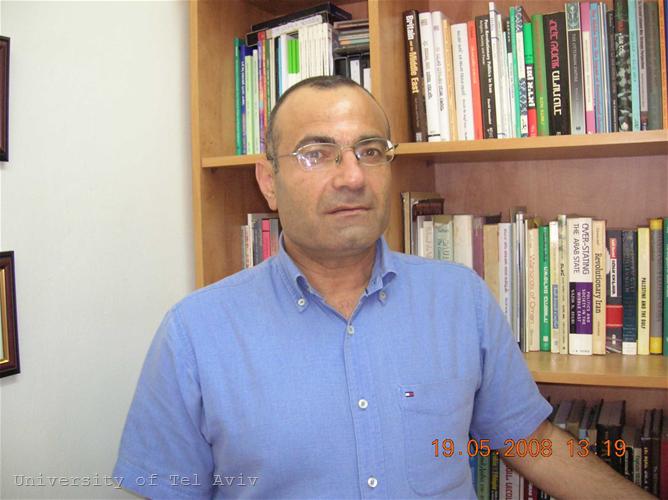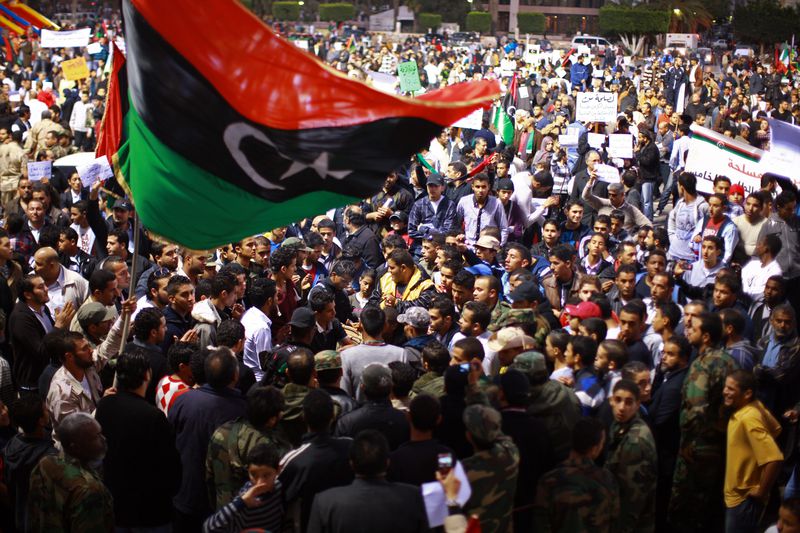The Russian-Chinese Veto on Syria: a Rehearsal for Making the UN Pointless
Dragomir Ivanov, February 9, 2012
 A cover of the Russian Profile magazine from September 2011 gives an almost prophetical hint to today’s diplomatic stalemate on Syria. The famous Russian expert of Arab affairs, former Prime Minister, foreign minister and head of the intelligence Evgeny Primakov makes the V-sign under a big title, that states “We will not forsake Syria!” Above it, there is another ascertainment: “For Russia it is difficult to say good bye to the former friends of the Soviet Union”.
A cover of the Russian Profile magazine from September 2011 gives an almost prophetical hint to today’s diplomatic stalemate on Syria. The famous Russian expert of Arab affairs, former Prime Minister, foreign minister and head of the intelligence Evgeny Primakov makes the V-sign under a big title, that states “We will not forsake Syria!” Above it, there is another ascertainment: “For Russia it is difficult to say good bye to the former friends of the Soviet Union”.
In the beginning of this week, in an article published in the state-owned newspaper “Rossiyskaya gazeta” Mr Primakov defended the Russian veto over a draft resolution of the UN Security Council on the violence in Syria. According to the Russian diplomat, the Syrian events do not fall into the idea of the “Arab spring” as they are not civil protests against an authoritarian regime but armed actions against the legal authorities. He adds that we will soon find out “who gave them arms and encouraged them to use them”. Mr Primakov states further that “Syria fell victim mostly because of its close relations with Iran”.
Warmed-up by Syrian orders for its military industry and by the appetite for the Syrian resources of the Russian energy giants, Russia’s position in the Security Council, together with that of China, destroyed UN’s painful efforts to react – at least verbally – to the massive bloodshed in the Arab republic. French President Nicolas Sarkozy described the result from the vote a “scandal” ,while US Secretary of State Hillary Clinton commented during her short visit in Sofia: “What happened yesterday at the United Nations was a travesty. Those countries that refuse to support the Arab League plan bear full responsibly for protecting the brutal regime in Damascus.”
The topic overshadowed all other issues at the Munich Security Conference. There, the Yemeni activist and Peace Nobel Prize laureate Tawakul Karman directly stated: “Al-Assad commits crimes with the support of Russia and China.” Human Rights Watch director Kenneth Roth added that the actions of Moscow and Beijing had made the Security Council pointless, while US senator Joe Lieberman furiously commented that  the Chinese and the Russians had chosen to stay “on the wrong side of history”. Criticism has spread even among the Arab protesters, who have already started to attack Russian embassies around the world, alongside with those of Syria.
the Chinese and the Russians had chosen to stay “on the wrong side of history”. Criticism has spread even among the Arab protesters, who have already started to attack Russian embassies around the world, alongside with those of Syria.
The strong international reaction appears to have pushed Moscow to try and minimise the damage. Sergey Lavrov, Russia's foreign minister, met in Damascus with Bashar al-Assad and even tried to act as his spokesman by assuring that the Syrian President was ready for dialogue with all political parties, including the opposition. It was announced also that before the meeting Mr Lavrov spoke over the phone with the Secretary General of the Arab League, Nabil Elaraby, and stated that the Arab monitoring mission in Syria should be continued and even expanded.
The unwanted war
 The Security Council invested a lot of efforts to overcome the Russian-Chinese stubbornness on Syria. The option for a military intervention was categorically rejected and the text of the resolution has been gradually softened in an attempt to win the support of Moscow and Beijing. “We aim to avoid any outside intervention, especially a military one”, emphasised Arab League secretary Nabil Elaraby. Ahead of the vote Ms Clinton also made the point that a repetition of the Libyan scenario was unwanted and called the option “wrong reasoning”.
The Security Council invested a lot of efforts to overcome the Russian-Chinese stubbornness on Syria. The option for a military intervention was categorically rejected and the text of the resolution has been gradually softened in an attempt to win the support of Moscow and Beijing. “We aim to avoid any outside intervention, especially a military one”, emphasised Arab League secretary Nabil Elaraby. Ahead of the vote Ms Clinton also made the point that a repetition of the Libyan scenario was unwanted and called the option “wrong reasoning”.
In contrast to Libya, Syria is densely populated and the fighting between troops of the regime and those of the opposition are led mainly in residential areas, which makes an aerial attack highly risky. Under much more favourable conditions the aerial operation in Libya was protracted for no less than 6 months.
In addition, Europe is busy with its debt crisis, while the US appetite for new adventures in the Middle East has decreased and the American interest is focused mainly on Iran.
The devil in the details of the failed vote
The devil in the details of the failed vote was the reference in the resolution to the Arab League plan from 22 January. Although the draft resolution dealt with standard phrases such as “deep concern about the worsening of the situation” and called for immediate stop of the violence, it recommended this to happen “without delay” according to the recommendations of the Arab project that is based upon earlier experience with power switch in Yemen.
Thus, without formally calling for handing over power in Syria, the essence of the document was of support for the Arab initiative. The Arab League plan suggests a power hand-over from Bashar al-Assad to Vice-President Farouk al-Sharaa and formation of a national unity government within two months. At the end of January Damascus officially rejected those ideas.
Even if the implementation of the Arab League plan was feasible, some of its shortcomings would have permitted the Baath clan to preserve its influence in a future Syrian government. Such a development was observed, for instance, in Yemen where former president Ali Saleh and his circle of officials were proclaimed immune against persecution.
Despite its shortcomings the draft resolution proposed by the UN would have given a chance for a significant international pressure over the Damascus regime. It would have sent a powerful signal to the people in Syria and to all other living under repression that a broad international consensus was possible against violent regimes.
Damage and opportunities
The failure in the UN Security Council is not only to the account of a handful  of disappointed Western diplomats. The Russian-Chinese veto struck a heavy blow to the significance and reliability of the entire United Nations.
of disappointed Western diplomats. The Russian-Chinese veto struck a heavy blow to the significance and reliability of the entire United Nations.
“It’s quite clear — this is a license to do more of the same and worse,” said Peter Harling, an expert on Syria at the International Crisis Group quoted by The New York Times. “The regime will take it for granted that it can escalate further. We’re entering a new phase that will be far more violent still than what we’ve seen now.”
A dark scenario is predicted in the Foreign Policy magazine by Marc Lynch too, a Middle East expert and Political Sciences professor in George Washington University. According to him, the Russian-Chinese veto increases the odds for Syria to descend even further into a civil war, fuelled by a flood of weapons and aid to all parties. If the international community decides to provide the rebel Free Syrian Army, the country will fall into a stalemate without much hope for a quick outcome of the conflict. “Syria would become a regional vortex, 1980s Lebanon on steroids: a protracted and violent civil war, fuelled by arms shipments and covert, proxy interventions by all parties. Does anyone really think this is a good path?”, asks Mr Lynch.
And yet, not all diplomatic options are exhausted. In Sofia Ms Clinton pointed out that “when faced with a neutered Security Council, we have to redouble our efforts outside of the United Nations with those allies and partners who support the Syrian people’s right to have a better future.” The State Secretary emphasised that an increase of the diplomatic pressure over the Assad regime was needed and work to convince those people around the Syrian president that he must go to open the way for a government that would represent all of the people of Syria. Ms Clinton underlined also the need for additional regional and national sanctions.
Some EU countries have already signalled their readiness to continue the pressure for a UN resolution – such are the intentions of the German foreign ministry, for instance. On the other hand, a spokesperson of UK Prime Minister David Cameron stated that London was looking for new means to increase pressure over Damascus. One of the options would be to go through the UN general Assembly, where the decisions are taken with simple majority and no member-state has a right to veto.
For now, there is nothing left but to wait. If, however, the UN repeats the result from 4 February, the failure will be huge and will hit the entire international security system. And then the United Nations will have to dissolve. Currently it is moving on the edge of pointlessness.
 | © University of Tel Aviv
| © University of Tel Aviv | © Présidence de la République @ L. Blevennec - P.
| © Présidence de la République @ L. Blevennec - P.  | © UN
| © UN